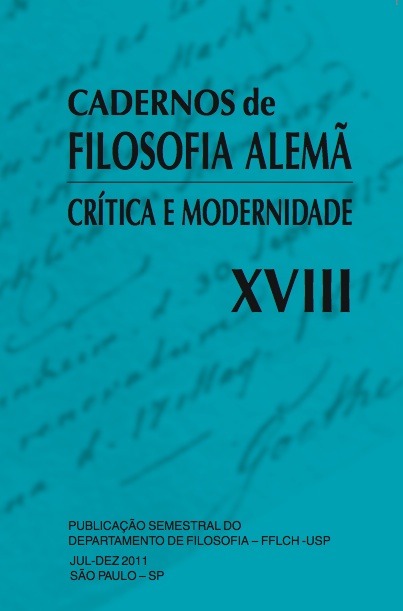Kant, History and the Idea of Moral Development
DOI:
https://doi.org/10.11606/issn.2318-9800.v0i18p105-132Keywords:
Kant, Philosophy of history, Moral development, Learning processAbstract
Kant’s philosophy of history has been criticized as incompatible with central tenets of his moral theory. To many commentators, the very idea of moral development has seemed inconsistent with some or all of the following basic Kantian tenets. First, his notion of rational development has been said to be incompatible with his claim that the moral law is unconditionally and hence universally valid (the universal validity problem). Second, his notion of rational development, especially the notion of ‘moralization’, seems to run counter to his thesis that moral agency is noumenal and hence atemporal (the atemporality problem). Finally, the notion of moral progress seems to contradict the dignity and moral equality of all humans by declaring some ‘freer’ than others (the moral equality problem). In this paper, I argue that the charges of inconsistency stem largely from an insufficient understanding of Kant’s model ofrational development. Taking the universal validity problem
as a point of departure, I start by examining what the ‘predispositions for the use of reason’ consist in and how Kant thinks they develop over the course of history. I then explain how this account allows us to solve the two other problems. I end with a discussion of Kant’s reasons for assuming that there is historical progress.
Downloads
Downloads
Published
Issue
Section
License
Information and conceptions on the texts are complete responsibility of the authors.
All the articles submitted before July 5th 2018 and those published after July 2021 are licensed under a CC BY-NC-ND license – except those published between the aforementioned dates, which are under the CC BY-NC-SA license. The permission for the translation of the material published under the license CC BY-NC-ND by third parts can be obtained with the consent of the author.
Open access policies - Diadorim
Rules applied before July 5th 2018:
Presenting a submission to our Editorial Board implies granting priority of publication for “Cadernos de filosofia alemã”, as well as transferring the copyright of texts (once published), which will be reproduced only with the manifest authorization of the editors. Authors keep the right to reuse the texts published in future editions of their work, without paying any fees to "Cadernos”. We will not grant the permission to re-edit or translate the texts for third parts without agreement of the author.


